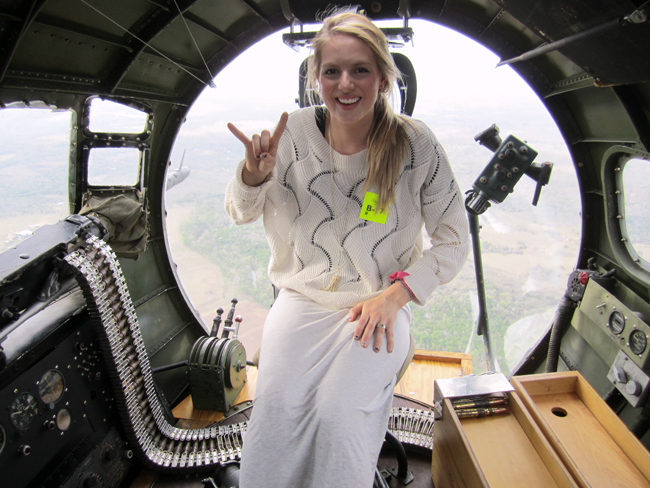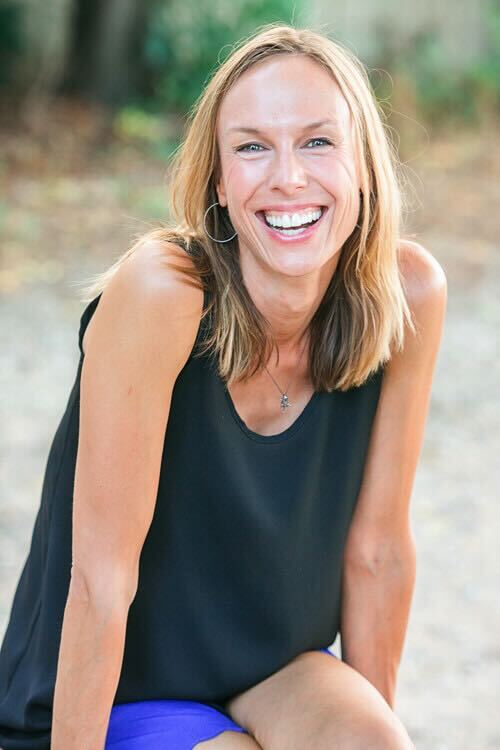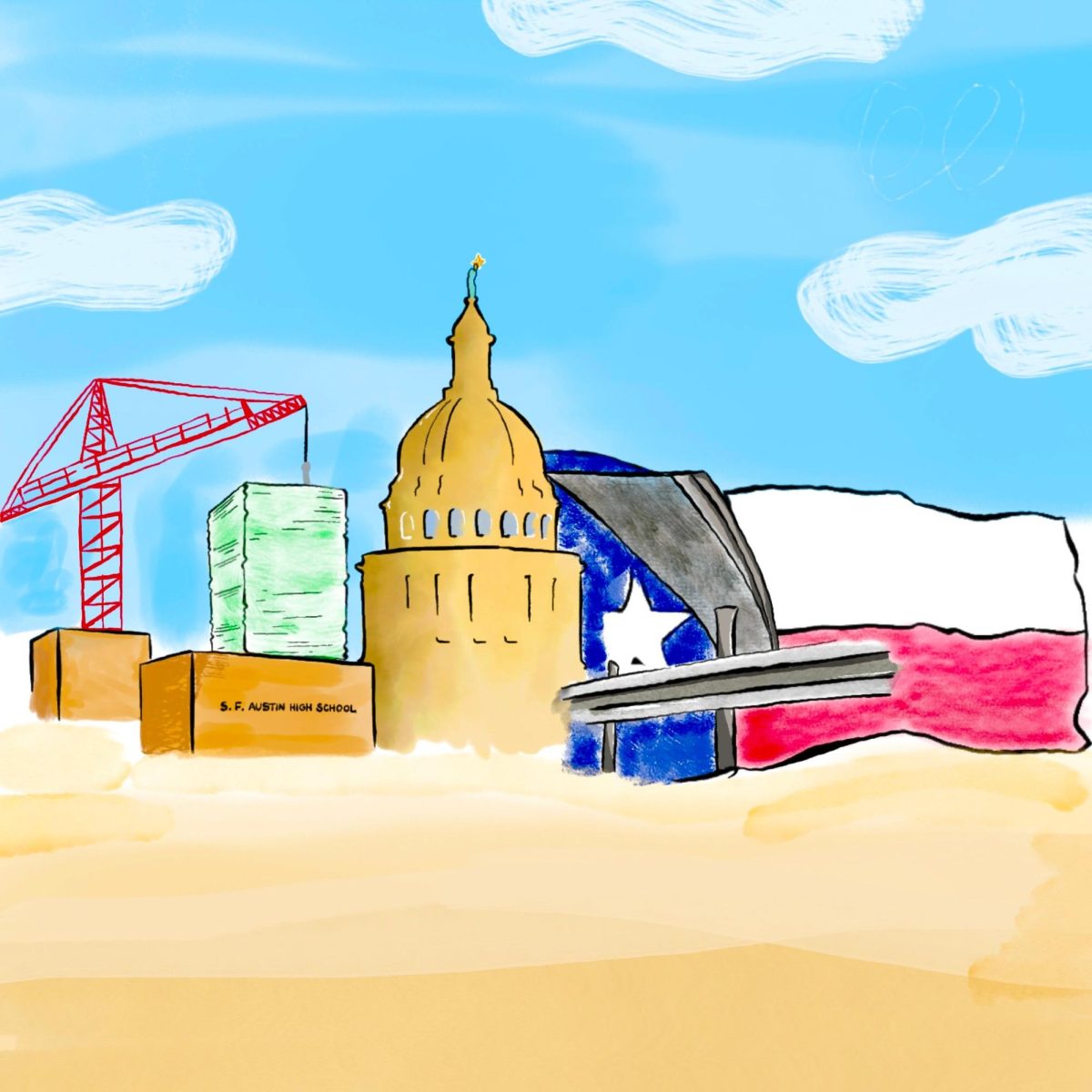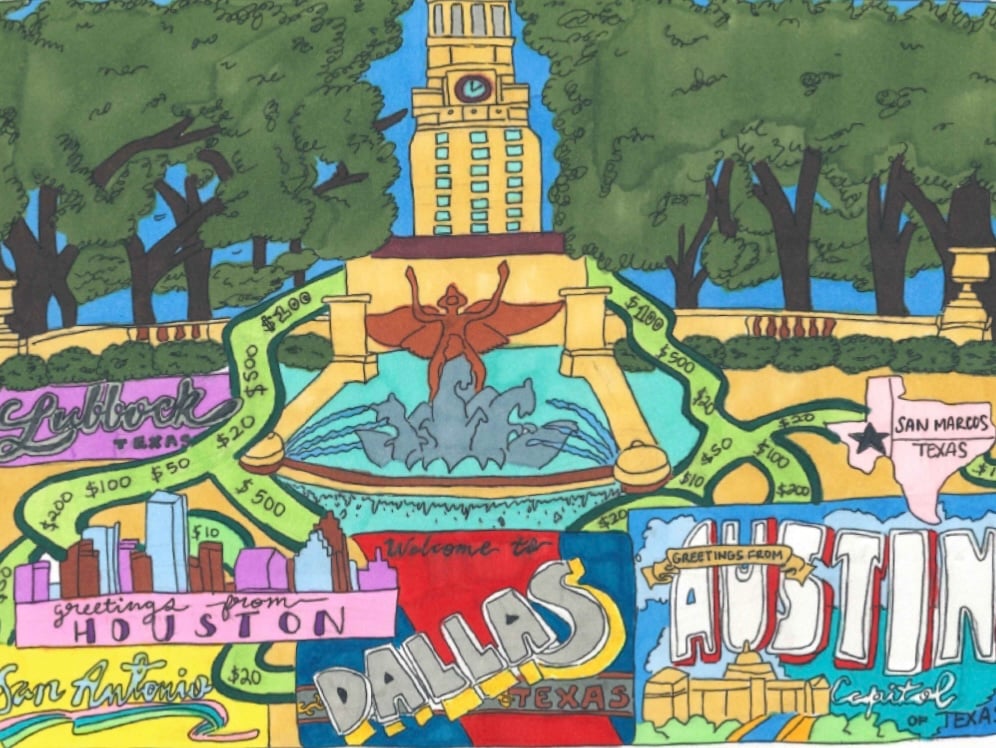World War II bombers aren’t only in museums — a Normandy Scholar alumnus sponsored four students to fly over campus in a B-17 on March 30.
“I’ve flown on one before with a different organization, and it had a big impact on me, and I was hoping it would have an impact on them,” Matthew Hammons said.
Students on the half-hour flight, sponsored by The Collings Foundation, which restores historic aircraft and allows people around the country to fly in them, were part of the Normandy Scholar Program.
“I guess it’s one thing to read about the fact that there were bomber planes and B-17s in World War II and another thing to actually go in one and see machine guns out every window, stacks of ammunition and everything painted army green,” Spanish and history sophomore Jenny Tamlyn said.
Tamlyn, who was on the flight, said the plane was used in 1946 for testing nuclear bombs.
“We were able to see where all the soldiers would have been situated,” Tamlyn said. “There was this little bubble almost underneath the plane where a soldier would be scrunched up with his knees bent shooting down at the enemy.”
Members of the Normandy Scholar Program have traveled to Europe each May since 1990 to visit historic sites associated with World War II, according to Normandy Scholar Program associate director Francoise De Backer.
“I think it’ll be really satisfactory, and I guess I’ll feel a feeling of accomplishment and closure after experiencing all these things we’ve been talking about the entire semester,” Tamlyn said.
Between May 11 and June 2, they will visit London, Paris, Normandy, Berlin and, for the first time, Krakow, which is near Auschwitz concentration camp, De Backer said.
“This year visiting Auschwitz is going to be an amazing moment,” De Backer said.
Frank Denius founded the semester-long Normandy Scholar Program in order to give students the opportunity to study World War II from a different perspective, according to De Backer.
Students in the program take courses to study the war from the Russian, German, American and French perspectives, De Backer said.
“I’m a Normandy Scholar myself, and it really helped me sort of define what type of life I wanted to lead and what type of person I wanted to be,” Hammons said.


















